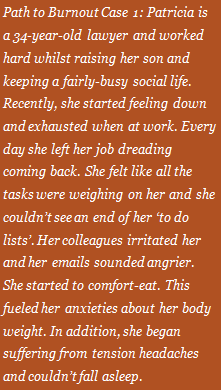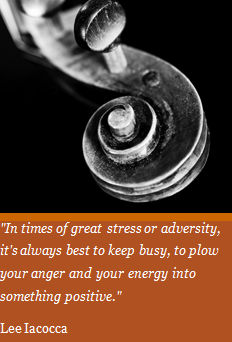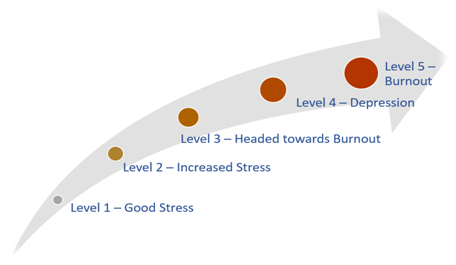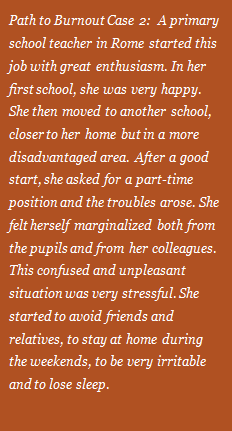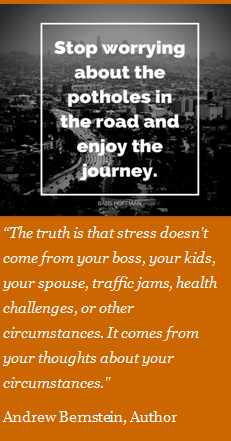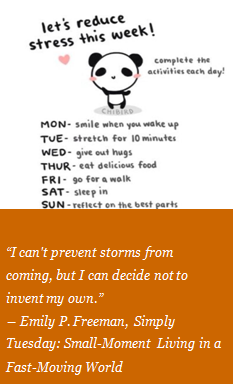Research Paper By Herman Pinto
(Business Coach, UNITED STATES)
Introduction
The scope of this paper is to cover the development of job related burnout through the stages of incremental stress and to identify the role of the coach in the healing process at each stage.
What is Stress?
Stress is the body’s natural reaction when under pressure or threat. When we are under pressure, the body will try to protect itself through releasing chemicals to the brain, adding strength and energy.
However, in some circumstances when we feel overwhelmed the body can shut down. It can slow down our reactions, slow our thoughts and feelings and enhance emotions.
Stress Levels
What happens if stress is not managed? If stress is not managed, the subject will go through several phases – stress levels – before it takes her life.
These are as below:
Level 1: Good Stress
Not all stress is bad. A certain amount of stress is required to assist you in achieving challenging goals or dealing with challenging situations such as (in case of students) exam time.
In fact, stress at this level, can help you accomplish tasks more efficiently. It can even boost memory.
Researchers believe that some stress can help to fortify the immune system.
For instance, stress can improve how your heart works and protect your body from infection.
In one study, individuals who Role of experienced moderate levels of stress before surgery were able to recover faster than individuals who had low or high levels.
Level 2 & 3: Increased Stress Levels
This is the range at which Stress is starting to take a toll on the subject.
The causes could be any of those listed below:
- Major life changes
- Work or school
- Relationship difficulties
- Financial problems
- Being too busy
- Children and family
- Chronic worry
- Pessimism
- Rigid thinking, lack of flexibility
- Negative self-talk
- Unrealistic expectations/Perfectionism
- All-or-nothing attitude
Level 4 & 5: Depression & Burnout
These levels are caused by repeated extreme stress.
Depression & burnout are diseases that are similar in many respects. Symptoms of both are:
- Concentration issues
- Memory issues
- Sleeping issues
- Exhausted feeling
Depression is more general – it affects several areas of life such as family, friends & hobbies.
Burnout is generally work related – but can eventually affect other areas in a subject’s life.
There is no easy way to differentiate between Depression and Burnout – they sometimes occur together.
Biochemestry
Refer to Appendix A for the University of Maryland Medical Center article on Stress.
Treatment
Managing Stress in Daily Life:
- Understand your Stress
Triggers: Record the time and date of a Stress Episode, actions and Feelings and anything you did to make you feel better.
- Physical Exercise
- Time Management – Get Organized
- Deal with Unhealthy
Habits – Smoking, Excessive Drinking and others.
- Mindfulness Exercises – relax
- Get good sleep
- Get support of a group or a coach.
In the Case of depression and Burnout, in addition to the above steps, the subject will have to be under the care of a physician.
Role of the Coach
The Life Coach plays a vital role in the stress management of a client. The first step is to understand the stress level that the client is at. This is done by:
- Understanding the client’s lifestyle and look for evidence that events have led to or are leading to stressful situations.
- Understanding the client’s approach to problems in general and in specific to the problem that he brings to the agreement.
- If there is evidence that the client is in need of Stress Management, the coach will help the client:
- Using Personality Tests and other tools to identify personality traits that could lead to a stressful reaction.
- Identify options and an action plan for Time Management
- Lay out action plans to deal with habits contributing to Stress.
- If there is evidence that the client is in need of medical care, he should be ready to suggest that the client see a physician.
Appendix A
The best way to envision the effect of acute stress is to imagine yourself in a primitive situation, such as being chased by a bear.
In response to seeing the bear, a part of the brain called the hypothalamic-pituitary-adrenal(HPA) system is activated.
- Release of Steroid Hormones and the Stress Hormone Cortisol: The HPA systems trigger the production and release of steroid hormones (glucocorticoids), including the primary stress hormone cortisol. Cortisol is very important in organizing systems throughout the body (including the heart, lungs, circulation, metabolism, immune systems, and skin) to deal quickly with the bear.
- Release of Catecholamines: The HPA system also releases certain neurotransmitters (chemical messengers) called catecholamines, particularly those known as dopamine, norepinephrine, and epinephrine (also called adrenaline). Catecholamines activate an area inside the brain called the amygdala, which appears to trigger an emotional response to a stressful event. In the case of the bear, this emotion is most likely fear.
- Release of Neuropeptide S: The brain releases neuropeptide S, a small protein that modulates stress by decreasing sleep and increasing alertness and a sense of anxiety. This gives the person a sense of urgency to run away from the bear.
- Effects on Long- and Short-Term Memory:During the stressful event, catecholamines also suppress activity in areas at the front of the brain concerned with short-term memory, concentration, inhibition, and rational thought. This sequence of mental events allows a person to react quickly, either to fight the bear or to flee from it. It also interferes with the ability to handle difficult social or intellectual tasks and behaviors during that time.
At the same time, neurotransmitters signal the hippocampus (a nearby area in the brain) to store the emotionally loaded experience in long-term memory.
Research also finds that during times of stress, nerve cells in the brain interpret chemical signals incorrectly. Instead of switching “off,” these nerve cells perceive the signals as telling them to switch “on.” It’s as though the brain’s “brakes” fail in response to stress.

